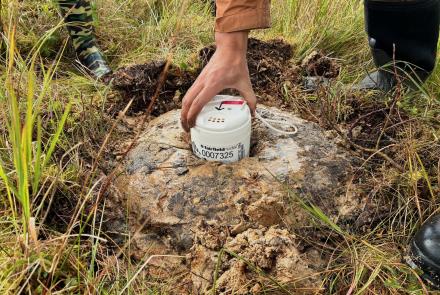Weak Tea as Strong Medicine
Working chiefly with sickly mice and statistical analysis, several chemists think they may have identified a powerful cancer-combatting substance in a common beverage: green tea.
As reported in a recent issue of Science News, green tea's trek from Japanese restaurant to medical laboratory began with an apparent statistical anomaly. Some kinds of cancer seem to be less common in the Orient than in Europe or the Americas. A few of these differences are well documented: for example, Japanese cigarette smokers have a lower rate of lung cancer than do U.S. cigarette smokers.
Researchers suspected that a likely reason for this difference might lie in the very different diets between East and West. Over the years, some aspects of standard Asian diets---such as an extremely low proportion of saturated fats---have indeed been recognized as promoting health, including low incidence of cancer. But beyond that, there seemed to be some connection between drinking green tea and avoiding cancer.
By 1987, the green-tea connection was clear enough to encourage Hirota Fujiki, a chemist at Japan's National Cancer Center Research institute, to analyze the brew for compounds that might be the source of the apparent benefit. He found a likely candidate in an antioxidant, known as (-)-epigallocatechin gallate or EGCG.
Some antioxidants are known to prefect against tumor development by destroying the highly reactive free radicals, atoms or molecules that disrupt normal cell processes and confound the proper operation of DNA. To see if this particular antioxidant shared that useful effect, Fujiki tested it on strains of mice with a genetic defect. The mice are very susceptible to cancer.
Fed a carcinogen known to affect the digestive tract, 63 percent of the mice developed intestinal cancer. Fed the same dose of the same carcinogen but also treated with EGCG, 20 percent the mice developed cancer. In mice specially bred to be susceptible to liver cancer, EGCG, reduced the number of liver tumors the animals developed, and sometimes prevented them altogether.
Workers at Rutgers University in New Jersey tested green tea's effects in a strain of hairless mice likely to develop skin cancer. Mice that drank green tea instead of water before and during exposure to chemical carcinogens or ultraviolet light developed fewer skin tumors, and the ultraviolet light produced less skin damage in the tea-drinking mice.
Another U.S. study seemed to credit green tea with protection against lung cancer. Mice exposed to one of the powerful carcinogens in cigarette smoke, for a dosage and period equivalent to the inhalations of a typical smoker over six years, developed an average of 22 tumors. Mice treated with the same dose of carcinogen but given only green tea to drink developed 12 to 16 tumors.
Fujiki has extrapolated the amount of EGCG needed to protect the mice into human terms, and has calculated that about 10 small cups---Chinese-restaurant size---of green tea every day should provide a person with the same protection. Many Japanese routinely drink that much green tea, but few other beoole do. The black tea preferred by American and Europeans contains only about ten percent of the EGCG present in green tea, while Chinese oolong has about 40 percent as much.
So far the research looks very promising, but it's too soon to be sure that what works in mice really will work in humans. It's also worth noting that, even in mice, the success is largely statistical. Challenged with carcinogens, most of the mice still developed some tumors, even if they drank nothing but green tea.




